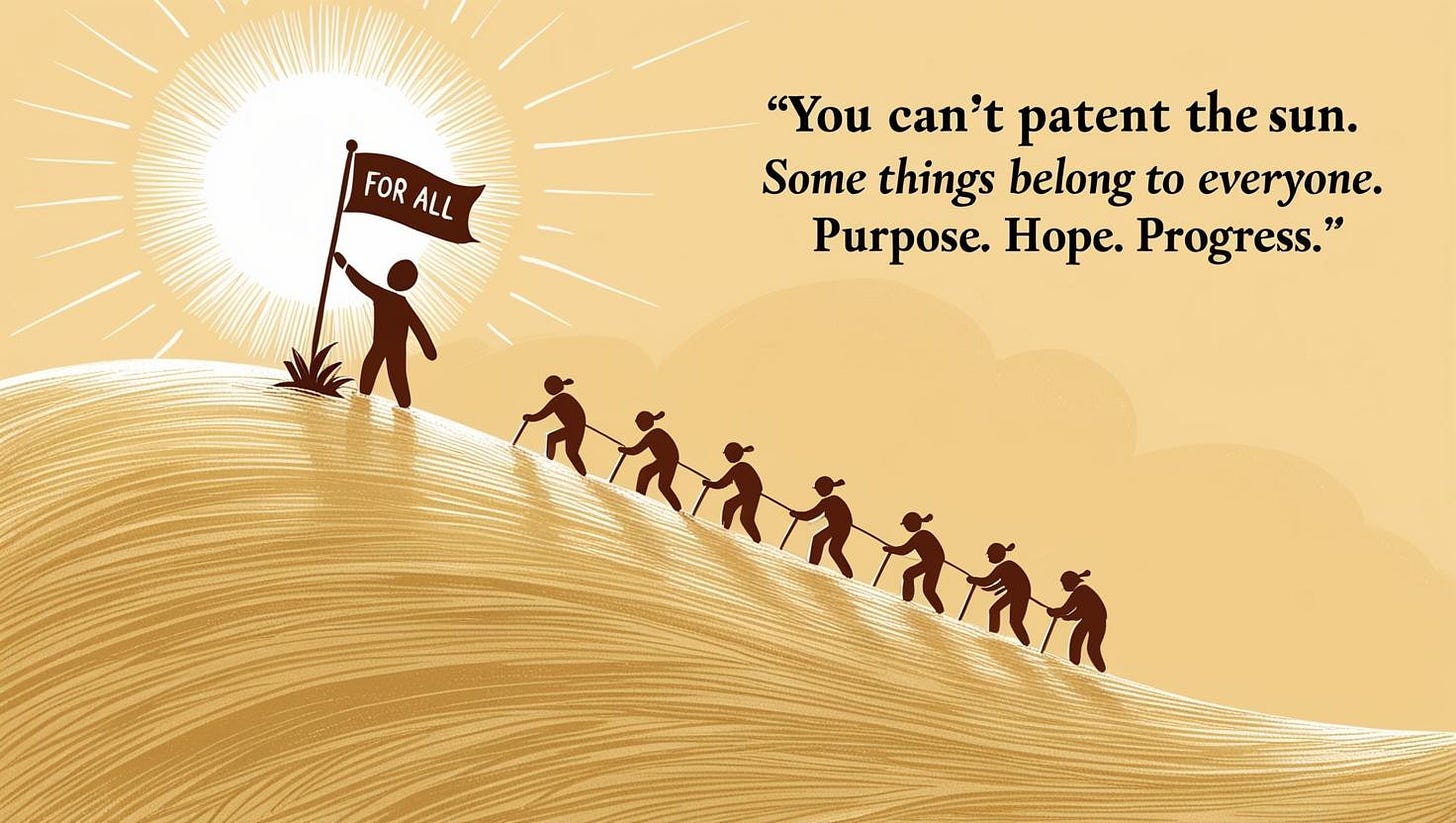No Patent on the Sun
The Story of Jonas Salk
“Day after day, ordinary people become heroes through extraordinary and selfless actions to help their neighbors.”
— Sylvia Mathews Burwell
You Can’t Patent the Sun
Chasing Influence: Transformational Coaching to Build Champions for Life
In the 1940s and ’50s, nothing struck fear into the heart of a parent quite like the word polio. It moved silently, often in summer, paralyzing children, stealing lives, and altering lives forever. At its peak, polio was second only to nuclear war in terms of American fears. Pools closed. Playgrounds emptied. Entire cities shut down in panic.
1952 marked polio's peak in the United States with nearly 60,000 reported cases, resulting in over 3,000 deaths and 21,000 cases of permanent paralysis. The disease showed no mercy, striking individuals from all walks of life—including President Franklin D. Roosevelt, who suffered paralysis in his legs. Worldwide, polio paralyzed or killed over half a million people annually.
The widespread fear created a remarkable mobilization of resources and human determination. The March of Dimes (first known as the National Foundation for Infantile Paralysis) raised millions through grassroots fundraising to combat polio. As author Jane Smith noted, “People worked on the polio vaccine like it was the Normandy invasion.”
A lead in this effort was Jonas Salk—a calm, determined virologist with sleeves rolled up and no interest in glory. Just a burning belief that he could make a difference. When the vaccine he developed finally worked—declared “safe, effective, and potent” on April 12, 1955—America erupted in celebration. Church bells rang. Parents cried. Kids were safer.
Then came the moment that made Salk a legend.
CBS's Edward R. Murrow asked the obvious, “Who owns the patent?”
Salk smiled and replied, “Well … the people, I would say. There is no patent. Could you patent the sun?”
That response—simple, resonant, and packed with integrity—became more than a soundbite. It became the path forward.
Salk could have become the wealthiest scientist in history. But he didn’t. Because some things are too important to monetize. Because being a great friend, teammate, family member, and leader isn’t about what you get. It’s about what you give.
And in that spirit, Salk's story raises a question that all of us should ask ourselves:
What is your job on the planet?
What needs to be done that you know something about—something that probably won’t happen unless you do it?
You don’t need to be a pioneering scientist to make a difference. The world changes every day when ordinary people make extraordinary, quiet decisions—to show up, to help, to lead, to serve.
Jonas Salk didn’t want to be rich. He wanted to be useful.
What about you?
“To the world you may be one person; but to one person you may be the world.”
— Dr. Seuss
Connecting this quote to the story. We can make a difference in the lives of those around us. Salk's contribution to society was indeed monumental, however, to those directly impacted by his work, he was their hero. Even small acts of kindness and compassion can significantly impact the lives of those we encounter!
Chasing Influence tip: The truest test of purpose is whether you're willing to pursue it without applause.
If you enjoyed this story, a series of three Chasing Influence workbooks is available. Stories are accompanied by discussion questions and answers. Each workbook contains 33 lessons to use with any team.
Updates on Chasing Influence
Chasing Influence: Transformational Coaching to Build Champions for Life is available in Kindle, softcover, hardcover, and audiobook editions.
For additional resources, links to podcast appearances, and other Chasing Influence news, click here.
©Troy Urdahl, 2025


